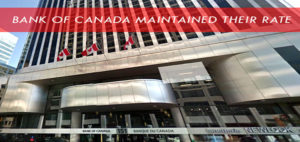Important Information on Your Mortgage – Read to the End
If one of your New Year’s Resolutions was to get back on track with your financial goals and wealth growth plans, now is a perfect time. This is the first of many announcements this year about potential interest rate changes that could impact a majority of your current and future debt – from mortgages and lines of credit to credit cards and personal loans.
My New Year’s Resolution to you is to help ensure that the impact of interest rate changes to you is minimal – advising you on ways to have more of your hard-earned cash stay in YOUR pockets and doesn’t line someone else’s – saving you thousands in unnecessary interest along the way – imagine what you could do with an extra $5,000 or $6,000 this year?
You may have already heard that recent mortgage legislation and qualifying changes has already impacted the borrowing power of many home buyers and owners, and we have also seen fixed term rates rise slightly. Just today one of the default insurers, CMHC, announced that they will be increasing their default insurance premiums effective March 1, 2017 – this typically only impacts those with less than 20% down payment. Now, more than ever, the benefits of receiving a pro bono consultation from your mortgage broker is key to ensuring you make the right decision on your biggest financial obligation while protecting your biggest asset – your income!
This communication is going to focus on what the Bank of Canada had to say today and how that impacts you, along with some thoughts on what we can do now to meet your 2017 financial wealth and freedom goals and start to save you some interest.
Bank of Canada Announcement Today
As you know, your variable rate mortgage, line of credit and/or student loans are all based on the Prime Rate and here is your personal update from me on the recent Bank of Canada announcement on changes to their Overnight Rate which in most cases impacts your Prime Rate.
BANK OF CANADA MAINTAINED THEIR RATE
At 10:00 am EST, Wednesday January 18, 2017, the Bank of Canada again maintained their overnight rate which means no change to your interest rate. This is great news to start the year off as you continue to benefit from low rates, which for sure puts a smile on your face as the temperature outside is a little frosty.
Given the assumptions the bank made in its forecast, they are expecting an upward swing in economic growth in 2017 anticipating to reach full capacity by mid-2018. It is still anticipated that prime rates won’t start increasing until well into 2017 but we are being given the heads up that they will start increasing eventually. Remember, that any increase to the prime rate since 1992 has only been by 0.25% at any ONE time, so you won’t see a large significant increase all at once.
Fixed rates have increased slightly since the last announcement, and are around 2.59% to 2.89% for a five-year fixed term. Also, remember that the prime rates and fixed term rates are impacted by two different sets of economic drivers and so increases in fixed rates doesn’t always mean the same increase in prime rates and vice versa.
Based on this recent announcement, and the anticipation that the prime rate will still remain low for a while now, unless you feel otherwise, I’d recommend that you remain with your current variable rate product as the interest is still lower than a fixed term rate right now. However, if having a fixed payment is important to you, call me so I can calculate what your new payment would look like and also if it is suitable for you. I’ll be in touch again for the next announcement on March 1, 2017.
To read the full announcement: BANK OF CANADA PRESS RELEASE JAN 18, 2017
2017 Financial Wealth and Freedom Goals
A goal can sometimes start with a challenge or concern – here are a few of the common things we are all thinking about at this time of year especially considering this week we had “Blue Monday” – so let’s get you in the green!
- Credit Card Balances Each Month
Problem: This refers to whether you carry a balance on any credit card from one month to the next in which case you are paying compounding interest on the entire amount borrowed for the full 30-day statement cycle. Have you noticed the small print at the bottom of your statement which says something like “if you make the minimum payment each month, you will pay the balance off in 71.2 years” – scary!
Solution: Start budgeting and planning to pay it off if you have sufficient disposable income each month to accomplish this in less than 12 months. If you cannot feasibly do it in this time frame, then consider a debt consolidation plan. Whether it is using equity in your home, or just a separate consolidation loan, it will give you a fixed monthly payment at a lower interest rate, that creates a disciplined approach to paying it off in full… oh and cut up the credit card! Alternatively, do you know you can negotiate the interest rate DOWN on your credit cards or potentially transfer to another credit card at as low as 0% interest for a short period of time – you can download a Report that you can use that really works and I have attached a copy just in case you need it. Book a pro bono consultation with me so that we can really strategize on the best way to eliminate any unwanted debt and start to build your nest egg – money in your pocket not the creditors!
- RSP Contributions – Should I or Shouldn’t I?
We have a few weeks left to decide if we want to make an RSP contribution or not – typically the first thing that comes to mind is the potential income tax credit and refund that would be coming your way plus you know you should be saving for retirement. Don’t let lack of planning now lead to becoming cash or income poor in retirement! Maybe you already have some RSP’s and are disappointed at the returns you are getting and wondering if it is even worth it. My personal recommendation is to always contribute as much as you can to benefit from the tax credits BUT at the same time manage what happens with your RSP’s more closely. Consider engaging the services of a superior financial planner that can help you diversify and give you quarterly updates and is willing to change your investment strategies based on current market conditions and your risk tolerance. Even consider self-directing some of your RSP’s into mortgages – how would you like to be the banker for a change!
On closing, I wonder if I can ask a favour – you might know someone who is unfortunately having a tough time right now with maybe too much debt or recent loss of income. There are many options to help using debt consolidation or access to some funds to get thru the tough times using the equity in their home. I have found recently that my access to alternative funds with lenders that have very flexible qualifying guidelines, has been able to help many who are in transition and/or just need enough money to get them thru a tough time like finding a new job, keeping above water and feeding their family in the meantime. Don’t hesitate to ask them to reach out to me – I can provide a pro bono consultation to get them thru this.










